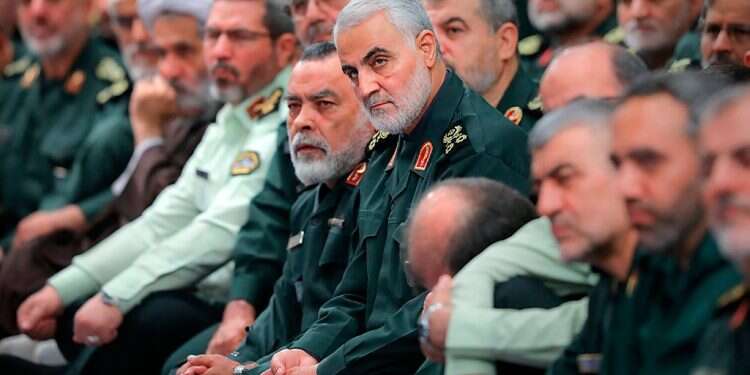Iran has developed a "sovereign capability to conduct warfare in battlefields across the Middle East through third parties" that gives it an advantage over the US and US allies in the Middle East, a study published by the International Institute for Strategic Studies (IISS) has found.
The study, titled "Iran's Networks of Influence in the Middle East," argues that the proxy groups Iran supports, such as Hezbollah and various Shiite militias, allow it to "influence deep into other states at relatively low cost."
Follow Israel Hayom on Facebook and Twitter
The study found that Tehran's preferred mode of operation in the Middle East is via proxy organizations in Lebanon, Syria, Yemen, and Iraq, which it says "has consistently delivered Iran advantage without the cost or risk of direct confrontation with adversaries."
The study also claims that organizations sponsored by Iran are a more important factor to the country's military might than its ballistic missile program, its nuclear program, or its regular army.
The study says that Iran has invested a total of $16 billion in Syria, Lebanon, Iraq, and Yemen, while sending Hezbollah $700 million annually.
The study argues that while the US and its regional allies still enjoy an advantage over Iran in terms of conventional military capabilities, Iran has more "effective force."
In addition, the study determines that despite US sanctions against Iran, Tehran has not encountered any major international opposition to its strategy, even as it faces a wave of popular unrest within Iran as well as protests in Iraq and Lebanon.
While Iran will continue to "seize opportunities" to expand its third-party capability, it must also "manage both the risk of overstretch and rejection by communities that see it as a foreign, interventionist state," the study says.




